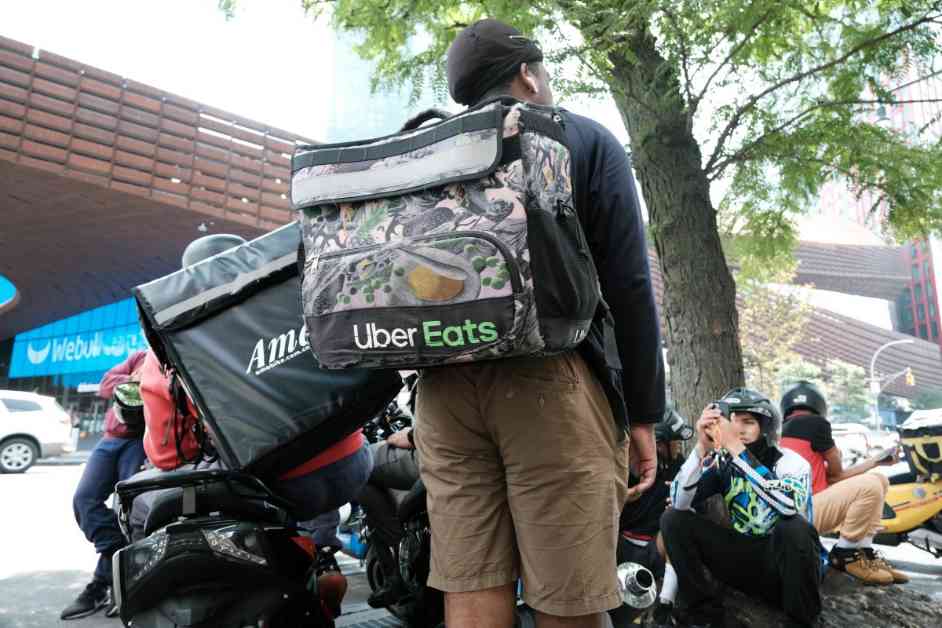Uber Takes Legal Action Against DoorDash for Alleged Anti-Competitive Behavior
In a bold move, Uber, the renowned ride-share giant, has taken legal action against DoorDash, a prominent delivery service company. The lawsuit, filed in the Superior Court of California, accuses DoorDash of engaging in anti-competitive practices by coercing restaurant owners into exclusive agreements, thus stifling fair competition in the market.
According to Uber, DoorDash has allegedly strong-armed restaurants into working solely with their platform by threatening severe consequences if they dare to collaborate with other delivery services. These threats include imposing hefty penalties on restaurants or even downgrading their visibility on the DoorDash app.
Specifically, Uber claims that DoorDash has been pressuring restaurants to enter into near-exclusive arrangements for first-party delivery services. This means that DoorDash insists on managing orders placed directly through the restaurants’ websites, effectively cutting out other delivery services from the equation.
In response to the lawsuit, a spokesperson for DoorDash dismissed Uber’s claims as baseless and lacking merit. The spokesperson asserted that DoorDash remains committed to offering merchants, consumers, and couriers a high-quality alternative, challenging Uber’s allegations.
DoorDash and Uber Eats are widely recognized for their user-friendly apps that seamlessly connect restaurants, consumers, and gig economy workers. These platforms allow consumers to browse and order a wide array of food options from various restaurants, with gig workers facilitating the delivery process.
Beyond their standard delivery services, both companies have introduced white-label delivery services—Uber Direct and DoorDash Drive on-Demand—in 2020. These services provide a cost-effective solution for restaurants, enabling customers to place orders directly through the restaurants’ apps and websites while Uber and DoorDash manage the logistical aspects behind the scenes.
According to Uber, DoorDash currently dominates the first-party delivery market for major enterprise restaurants in the United States, exerting its influence through what Uber deems as anti-competitive tactics to maintain its stronghold.
Sarfraz Maredia, the head of delivery for the Americas at Uber, emphasized the importance of empowering restaurants to make informed decisions about their delivery partnerships without facing undue pressure or repercussions. He expressed hope that the lawsuit would put an end to DoorDash’s alleged unfair practices and restore freedom of choice for restaurants.
One notable example cited in the lawsuit involved a significant restaurant company that purportedly abandoned plans to implement Uber Direct across multiple brands due to alleged threats from DoorDash to hike up service fees if the company continued to work with Uber.
Multiple sources have reportedly echoed sentiments of feeling coerced and bullied by DoorDash, with some likening the experience to having a metaphorical “gun to their head.” Uber’s legal action seeks to address these concerns and prevent further harm to businesses seeking alternative delivery options.
Uber has formally requested a jury trial to address the alleged damages caused by DoorDash’s anti-competitive practices, which Uber claims have resulted in significant revenue losses and hindered the growth of Uber Direct.
The lawsuit underscores the escalating tensions in the competitive food delivery market, shedding light on the challenges faced by industry players striving to offer innovative solutions while navigating complex business dynamics.
Meet the Experts
Kirsten Korosec, a seasoned reporter and editor specializing in transportation technologies, offers valuable insights into the evolving landscape of delivery services and the implications of legal disputes on market dynamics. With a wealth of experience covering emerging trends in the industry, Korosec’s expertise enhances our understanding of the complexities at play in the Uber-DoorDash legal battle.
Maxwell Zeff, a senior reporter with a focus on AI and emerging technologies, provides a nuanced perspective on the intersection of innovation and competition in the delivery service sector. Zeff’s in-depth knowledge of the tech industry and its impact on business practices enriches the narrative surrounding Uber’s legal action against DoorDash.
This engaging narrative highlights the high-stakes nature of the legal battle between Uber and DoorDash, underscoring the broader implications for competition and consumer choice in the evolving landscape of food delivery services. As industry giants clash over market dominance, the outcome of this lawsuit could reshape the future of delivery platforms and influence the dynamics of the gig economy.











